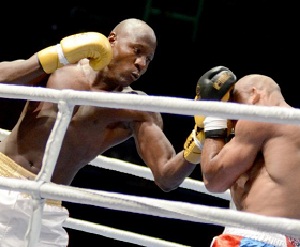 Antonio Becali, president ofCuba’s National Institute of Sports, Physical Education and Recreation, offered a press conference on the island’s participation in the Barranquilla Central American and Caribbean Games
Antonio Becali, president ofCuba’s National Institute of Sports, Physical Education and Recreation, offered a press conference on the island’s participation in the Barranquilla Central American and Caribbean Games
“In a complex scenario, aware of the resistance that Mexico and Colombia will offer us, we will honor the commitment made to our people to repeat in Barranquilla the first place we have won since the 1970 Central American and Caribbean Games in Panama.”
This was confirmed by Dr. Antonio Becali, president of the National Institute of Sports, Physical Education, and Recreation (Inder), at a press conference held July 12 with representatives of national and international bodies, in Havana’s Ciudad Deportiva coliseum.
The national head of sports pointed out that Colombia, as venue of the event and a country that has seen a sustained qualitative rise in recent years, has an advantage in competing for the top spot. The competition will see the participation of 538 Cuban athletes, 66% of whom are young athletes who will participate for the first time in these Games, to take place July 19 through August 3.
“We have conducted a scientific study on the possible results in each discipline, based on which we must obtain at least 15 gold medals to fulfill our commitment to win. We need to be very efficient. Remember that Cuba will not be participating in 91 of the 450 scheduled events, including a number in which the Colombians and Mexicans will be favorites. We know what is required to win the Games,” Becali stated.
Regarding the 14 events that have returned to the Baranquilla 2018 edition, after receiving the support of at least five countries ready to participate in each, he argued that these most favor Colombia, with the possibility of securing four gold medals; followed by the Dominican Republic, which could take the same number; while Cuba could see a further two medals.
COMBAT SPORTS
Responding to a question from reporters, the Inder President noted that, as in other editions of the Games, Cuba’s greatest potential is concentrated in combat sports: judo, boxing, taekwondo, and the different wrestling styles.
He also explained that rowing and canoeing are valuable medal contributors, along with athletics; while having competed in various international competitions and qualifying tournaments, and attended training camps in Ecuador and Mexico, has raised the quality of Cuban competitors in badminton, shooting sports, and table tennis, among other events.
Antonio Becali stressed that another essential element is that Cuban athletes will go to Barranquilla equipped with the latest technology equipment. He mentioned the pistols and rifles of the shooters, the bicycles of the triathletes and cyclists, as well as the row boats and canoes, to mention a few.
Cuba’s performance is not characterized by achieving high results only at certain times, as happens with countries that stand out when they host a major event, and later fail to maintain the same competitive level. We work to sustain over time the performance that has allowed us to continue to win since Panama 1970 to date, Becali stressed.
SUPPORT WITHOUT BORDERS
Even though Mexico and Colombia will be the main rivals in the fight for the most medals, Cuba has not skimped on its sports solidarity with many nations around the world, including the two mentioned, sending trainers and specialized personnel.
Becali explained that although the official figure of Cuban representatives at the Games is 789 people, including 133 trainers, it remains to be known the number of Cuban coaches who will be attending Barranquilla as part of the delegations of other countries, whose rosters are yet to be announced.
Responding to another concern expressed by reporters, the head of Inder confirmed that all athletes on contracts with foreign clubs were considered in drawing up the national roster, and their possibilities in the upcoming event were guaranteed through contacts with the responsible authorities of each foreign team, with the commitment to undertake the necessary training plan to offer the best possible performance in Barranquilla. He added that only the baseball players Alfredo Despaigne and Liván Moinelo, playing in the Japanese professional baseball league, were exempted from participating on the island’s team.
The Cuban delegation, which headed to Barranquilla in the early hours of July 15, received talks on the complex political and social situation currently existent in Colombia, and it was revealed that Cuba will have the support of a solidarity group at the venue. The national delegation is composed of young athletes whose average age is 23, and who have studied up to the third year at the university level.
Antonio Becali explained that previously, the first year following the last edition of the Olympic Games was considered to be of little importance. However, today, due to the influence of the qualifying tournaments for both the Central American and Pan American Games, this initial cycle has seen a different dynamic, that has made the training prior to Barranquilla more extensive.
BEYOND THE MEDALS
- Of the 538 Cuban athletes to compete in Barranquilla, 66% are participating for the first time in these Games.
- The national delegation is composed of young athletes whose average age is 23, and who have studied up to the third year at the university level.
- Cuba currently has 176 sports collaboration agreements with 134 nations.
- From 1962 to date, more than 62,000 Cubans from the sports sector have collaborated in 94 countries in the Americas, Asia, Africa, Europe and Oceania.
- A total of 12,838 students from 102 countries have graduated in Physical Culture in Cuba.
(Granma)